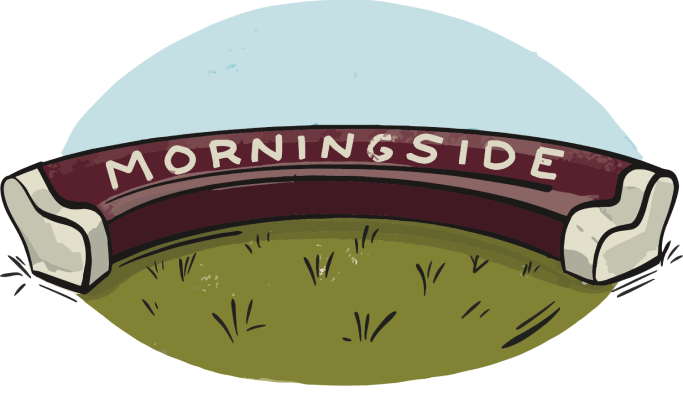
EARN YOUR MAT IN STEM EDUCATION 100% ONLINE
Designed for innovative teachers who seek to engage in STEM curriculum and instruction and enhance knowledge and skills in engineering and technological design; earth and space science; statistics; physics; and more. Iowa teachers may also choose to pursue a STEM Endorsement, using the coursework completed in this degree program. Students conduct Action Research in STEM environments.
Program Details
CREDITS
32
COST PER CREDIT
$365
COURSE FORMAT
Online
PROGRAM HIGHLIGHTS
- 100% Online, Asynchronous Delivery
- Courses Offered Every Fall, Spring, Summer
- Rolling Admissions Process
- Finish in 18 months or Less
- Led by Experienced, Qualified Faculty
COURSES
Orientation to graduate education programs and readiness for online learning to be completed during the student’s first semester of enrollment. Expectations related to scholarly writing skills are introduced.
Overview of approaches to educational research and pertinent educational theoretical frameworks. Students will examine the role of action research in their practice.
Identify and review scholarly literature, critically evaluate research, and develop skills to write an effective literature review related to topics in STEM education.
Students examine the systematic design feature of action research, with a focus on selecting effective data tools and creating an implementation plan for a research project.
Students examine evaluation, analysis, and interpretation of action research data, as well as designing strategies for instructional adjustment and re-evaluation.
Using foundational methods of design and analysis, students conduct action research related to STEM education. A capstone research project, including a review of literature, a systematic inquiry of a research problem, implementation of an intervention, analysis and interpretation of data, and reflection for instructional adjustment.
Expands the use of technology tools in teaching situations and includes an action inquiry project using a technology-infused solution. Discusses issues related to technology and its use in schools.
Examination of socio-cultural concerns and ethics related to educational foundations with emphasis on contemporary issues influencing curriculum, pedagogy, inclusion, human relations, educational policy, and social justice.
Educators will gain an understanding of the engineering design process and develop practical ways to integrate engineering design into the classroom. Topics include fundamentals of engineering design, engineering in society, techniques for eliciting design requirements and constraints, and instructional strategies to support student engagement with open-ended engineering design challenges. Includes an examination of research and current issues related to STEM education.
Provides a foundational knowledge for curriculum development and assessment in the STEM field. Topics include curriculum and standards mapping, integrating the content and context of each STEM discipline, assessing integrative learning approaches, comparing and contrasting the goals of each STEM discipline, and integrating and assessing information literacy skills in STEM curriculum.
Educators will gain an understanding of pedagogy in STEM education and the instructional materials used in the classroom. Topics include project-based learning compared to problem-based learning, mathematical modeling and computational reasoning, instructional strategies for inquiry, instructional strategies for an inclusive classroom, and classroom management in project-based classrooms.
EDTE 552 (2 cr) Basic Math and Measurement for the Educator
EDTE 553 (3 cr) Algebra for the Teacher
EDTE 554 (2 cr) Geometry for the Educator
EDTE 560 (2 cr) Earth Science for the Educator
EDTE 561 (2 cr) Life Science for the Educator
EDTE 562 (2 cr) Physical Science for the Educator I
EDTE 563 (2 cr) Physical Science for the Educator II
EDUC 588 (2 cr) STEM for the Talented and Gifted Learner
STEM 562 (2 cr) Earth & Space Science for the STEM Educator
STEM 564 (2 cr) Chemistry for the STEM Educator
STEM 566 (2 cr) Number Theory for the STEM Educator
STEM 568 (2 cr) Statistics for the STEM Educator
STEM 570 (2 cr) Computer Programming for the STEM Educator
Additional Program Details
Application Requirements
- Complete an application to our program.
- A bachelor’s degree from a college or university accredited by an institutional accrediting agency recognized by the United States Department of Education.
- A minimum gpa of 2.75 on a 4.0 scale is required for admission. If an applicant does not have a 2.75 cumulative GPA, the last 60 hours of coursework completed will be considered under the same requirements.
- We accept official electronic transcripts emailed to soe@morningside.edu directly from either an institution, (i.e., Registrar’s Office), or from an established third-party provider.
- A valid teaching license; please email directly to soe@morningside.edu.
FINANCIAL AID
There is a $150 non-refundable clinical course fee (required for some endorsement programs) and a $150 graduation fee (a one-time fee for degree programs) and a one-time Graduate Orientation Course fee of $230.
Teach Grants
Students seeking a master’s degree in education may be eligible for a federal TEACH grant.
Other Aid
Students enrolled in at least five (5) credit hours per term may be eligible for the following:
Additional information may be found online at the following websites:
- FFEL and Direct Stafford Loan Cancellation for Teachers (up to $5,000 or $17,500) and/or Federal Perkins Loan Teacher Cancellation (up to 100%)
- Teach Iowa Scholar Program
- Federal TEACH Grant (Loan) Program
Professional Licensure Disclosure
Degree or endorsement programs offered by the Sharon Walker School of Education at Morningside University that prepare students for licensure as educators are designed to meet the licensure standards set by the Iowa Department of Education.
SCHOOL OF EDUCATION CONTACTS
Contact Us
Morningside University
Sharon Walker School of Education
1501 Morningside Avenue
Sioux City, IA 51106




